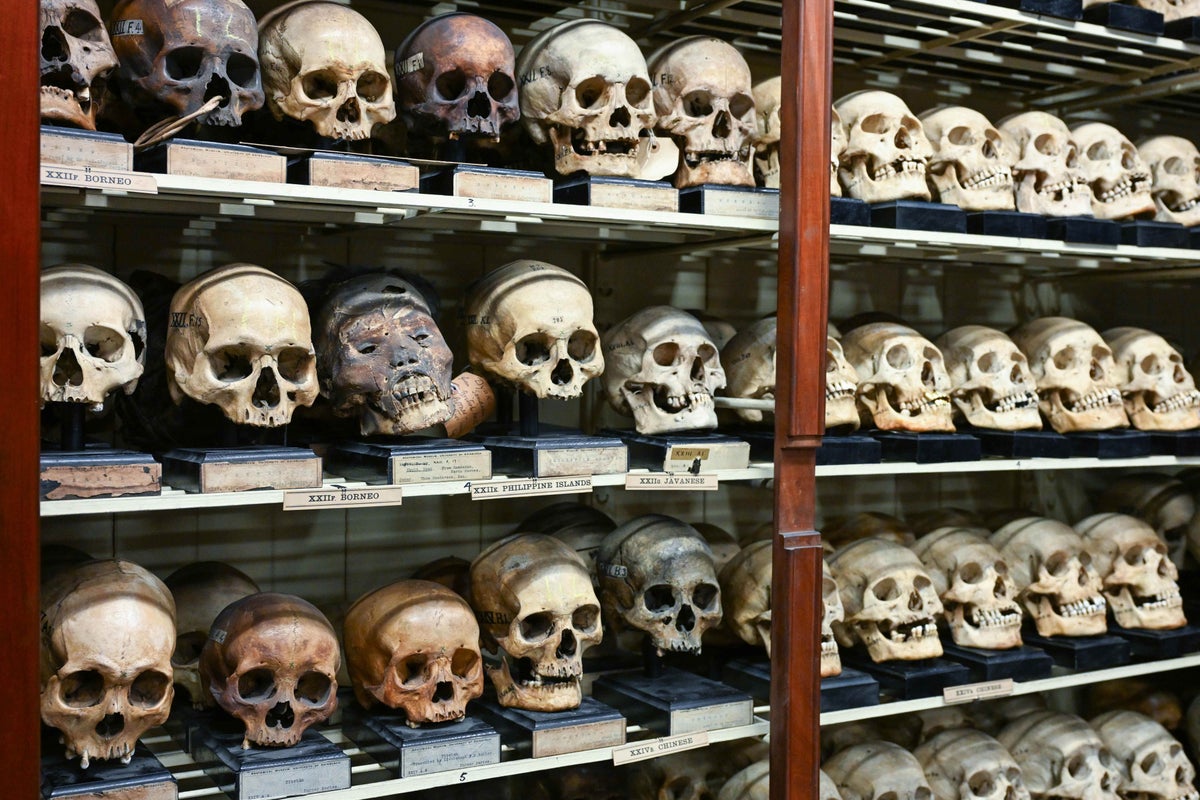
The skulls of four Taiwanese tribal warriors killed nearly 150 years ago have been repatriated by a Scottish university.
The University oo Edinburgh presented the remains to dignitaries from the Mudan community – also known as the Botan tribe – in a formal handover ceremony at the capital’s St Cecilia’s Hall.
Mudan is a township in the south of Taiwan predominantly populated by the Paiwan people, the second-largest indigenous group in the country.
Representatives of the University of Edinburgh took part in a traditional Paiwan service with the mayor of the Mudan Township before the handover to honour the spirits of the deceased warriors.
We are committed to addressing our colonial legacy and this repatriation is the latest action we have taken in line with our longstanding policy of returning items to appropriate representatives of the cultures from which they were taken— Prof Tom Gillingwater, University of Edinburgh
The skulls are now destined to be temporarily displayed in the National Museum of Prehistory in Taiwan until a permanent resting place is confirmed following a consultation with the Mudan communities.
The four tribal warriors were killed in 1874 during a battle with Japanese invaders to avenge the deaths of 54 sailors who were slain three years earlier by the Paiwanese.
The sailors were ambushed after becoming shipwrecked in Taiwanese territory in what is now referred to as the “Mudan Incident”.
It is understood the four Mudan warriors were unlikely to have been the perpetrators of the original incident.
The skulls were thought to have originally been taken as war trophies by Japanese soldiers and were carried to Japan by an un-named US Navy officer who accompanied them as a military adviser.
Over the next 30 years, the skulls were held by Stuart Eldrige, a US doctor and skull collector living in Yokohama, and John Anderson, the first curator of the Indian Museum at Calcutta.
The remains finally reached Edinburgh in 1907 after being handed over to the university’s principal, William Turner.
The University of Edinburgh holds one of the largest and most historically significant collections of ancestral remains.
The majority of its skulls were brought together by Turner and, like many UK universities with anatomical collections, they came from the British Empire’s colonies or through their global networks.
Human craniums were used in the study of anatomy and anthropology as well as the now discredited idea of phrenology.
Popular in the UK and other parts of Europe in the colonial era, phrenology formulated racist theories of inferiority based on the shape and dimensions of a skull.
The university’s Anatomical Museum collections are now studied for research into the history of genetics, diets and the movement of people.
Professor Tom Gillingwater, chair of Anatomy at University of Edinburgh, said: “This repatriation is a culmination of international co-operation between the University and the Taiwanese community.
“We are committed to addressing our colonial legacy and this repatriation is the latest action we have taken in line with our longstanding policy of returning items to appropriate representatives of the cultures from which they were taken.”
The university has a long history of repatriating remains and items from its collection and works with communities around the world to engage with its collections.
The first repatriation took place more than 75 years ago and, in 2019, nine skulls were returned in after being taken from Sri Lanka during the British colonial period in the 1880s.
The university continues to examine ways to address its colonial legacy and the contemporary impact of its complex past.
Alongside repatriations, the institution is undertaking a range of activity to review its past associations with the transatlantic slave trade, colonialism and other aspects of race.


.jpg?w=600)




